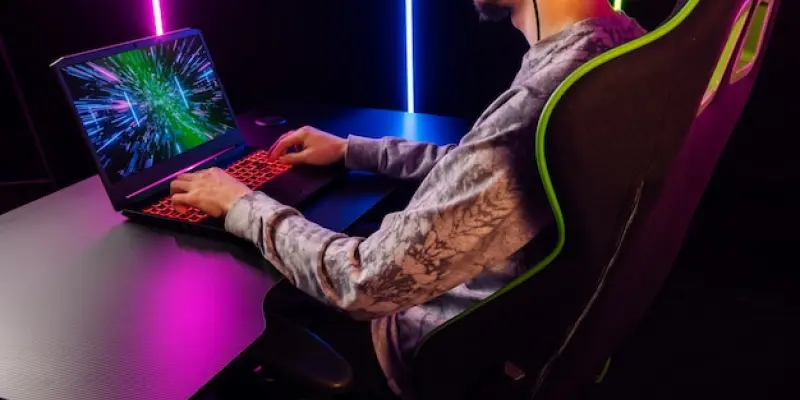In an intriguing development for gaming enthusiasts, Nvidia is teaming up with Alienware to introduce Arm-based gaming laptops, a move that has sparked significant interest within the technology community. This collaboration, which also involves MediaTek, marks Nvidia’s strategic entry into a market long dominated by x86 CPUs and discrete GPUs. The anticipated release of a novel application processing unit (APU), reportedly based on Nvidia’s Blackwell architecture, promises groundbreaking changes in portable system designs. With expectations of performance similar to the acclaimed GeForce RTX 4070 and a power consumption ranging between 80W and 120W, these laptops are poised to redefine gaming capabilities by efficiently integrating CPU and GPU components. This initiative not only reflects Nvidia’s innovation-driven vision but also aligns with an industry trend towards adopting energy-efficient Arm processors, as witnessed in Qualcomm’s recent advancements with its Snapdragon X Elite series.
Strategic Partnership and Technological Innovation
Speculation about Nvidia’s gaming laptop ambitions has been circulating for some time, yet tangible progress was elusive until recently. This new venture with Alienware and MediaTek underscores a significant shift in the competitive landscape of gaming laptops, highlighting the potential for advanced energy efficiency and performance that Arm-based architectures offer. Dell’s Alienware, known for its high-performance gaming hardware, is an ideal partner for Nvidia’s ambitious project. The collaboration aims to harness the strengths of each company to create a product that not only meets the high demands of gamers but also incorporates the latest technological advancements. Nvidia’s venture into Arm-based computing signifies a broader industry movement toward diversifying computing solutions beyond traditional x86 architectures. With these new processors, gamers can expect enhanced efficiency, offering powerful gaming experiences with reduced power consumption.
Anticipation and Industry Impact
Nvidia’s partnership, centering on Arm-based gaming laptop technology, is poised to bring considerable shifts in the gaming laptop arena. Their entry with Arm processors suggests that other companies might reevaluate their current strategies, pushing development toward energy-efficient, integrated solutions. Jensen Huang, Nvidia’s CEO, affirmed this initiative, underscoring confidence in its market potential and the practicality of Arm-based designs. Similarly, Dell’s CEO, Michael Dell, has alluded to further progress, signaling ongoing momentum and engagement with advanced processing technologies. As the public eagerly awaits the launch of these laptops, curiosity surrounds their genuine capabilities and consumer acceptance. Despite hurdles, particularly with the adoption of new architectures, Nvidia and its collaborators are ready to impact gaming technology’s future. This evolution mirrors technology’s dynamic essence, where continuous innovation revises industry norms and user expectations, ultimately shaping how we interact with gaming devices.

